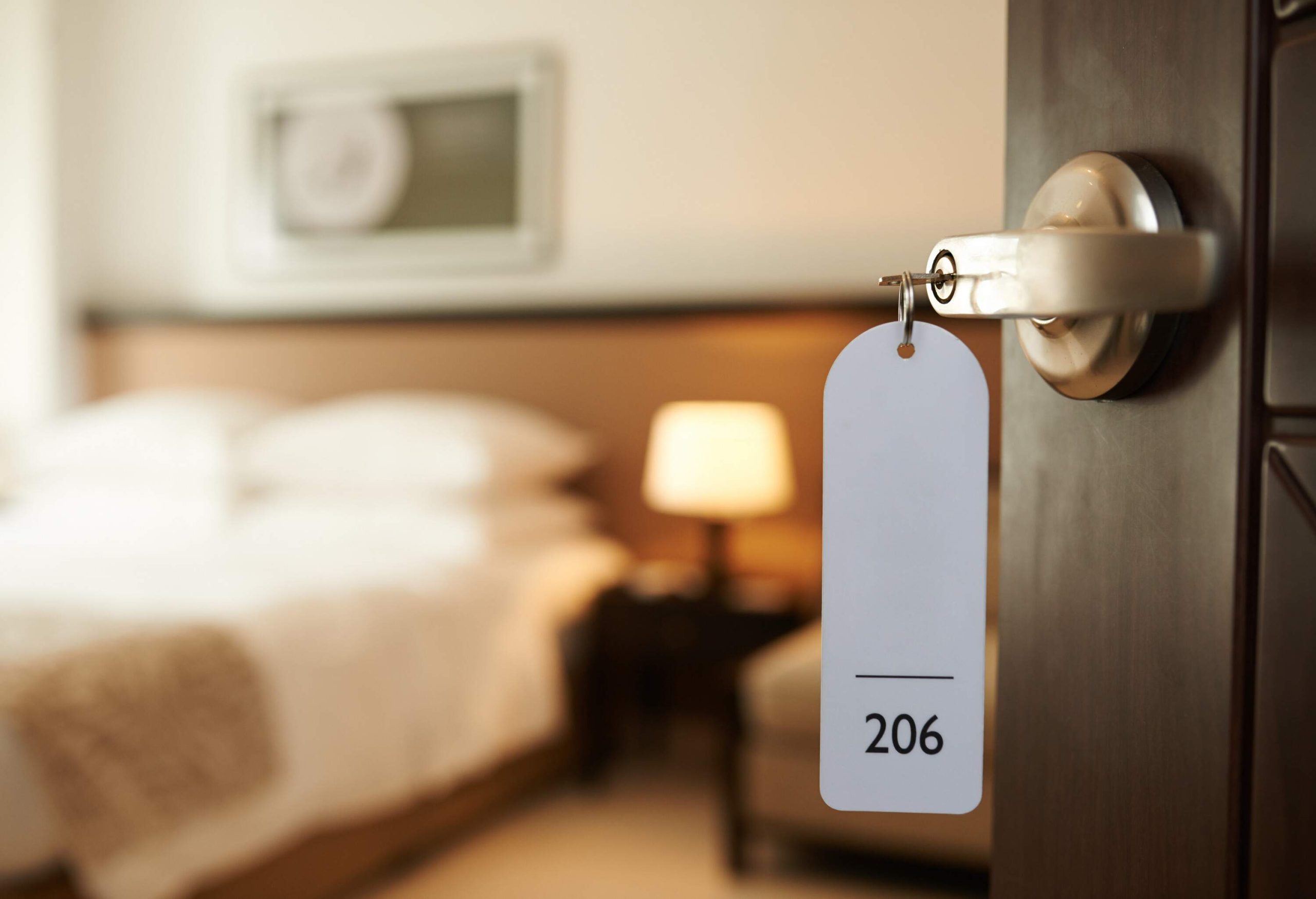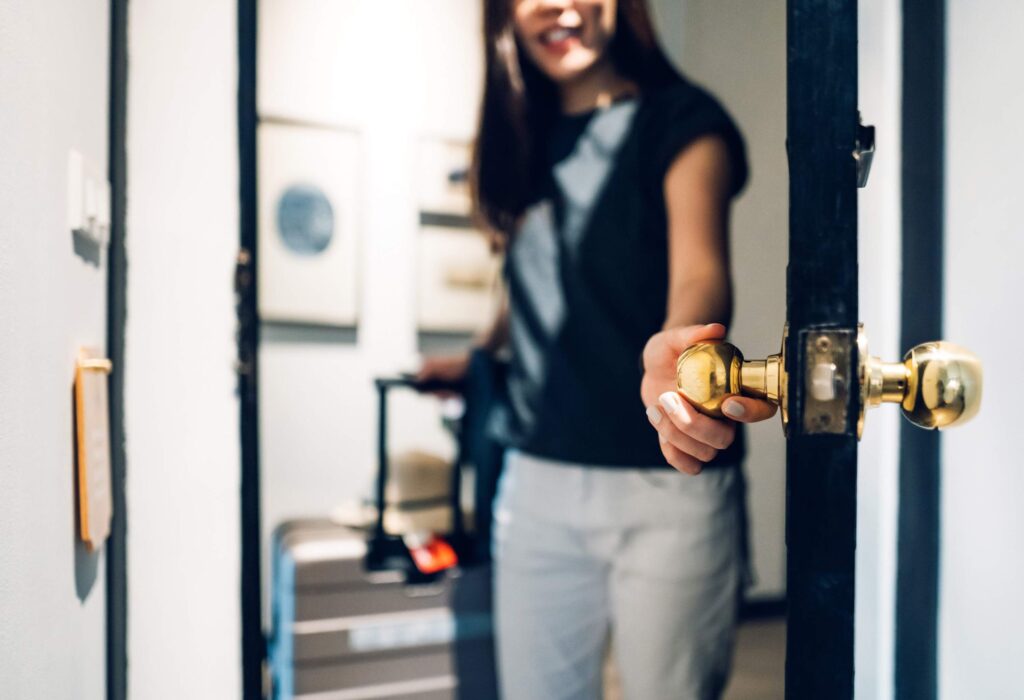You have a driver’s license, and you can vote, but there is one freedom that’s not guaranteed to you in the US – booking a hotel at the age of 18.
In fact, where I live in Las Vegas, the big casino hotels don’t even allow people under the age of 21 to walk around a casino floor unaccompanied, let alone book a room. Side note: We even have curfews of 9 pm for 18-year-olds and younger on the weekends, just in case you thought Vegas was a lawless party zone.
My city, and other so-called “party cities,” are typically tougher to book for those under the legal drinking and gambling age of 21 years old. Other US cities may allow 18-year-olds to book.
Many other countries are more permissive than the United States, for both drinking and hotel booking. But in every city, it’s crucial to know the rules before you make plans.
If you’re wondering how old do you have to be to book a hotel room, read on to unpack the age requirements in the US and elsewhere.
Age policies at hotels

For hotels in the US, making rules about age requirements is a sticky topic, and here’s why: Hotels have been bound by the same creed for centuries. The general idea is that innkeepers are required to receive anyone who wants to stay. In other words, a hotel may not select its guests.
For the United States, the Civil Rights Act of 1964 codified this, prohibiting places of public accommodation from discriminating against any person on the grounds of race, color, religion, or national origin. In theory, a hotel is even required to receive minors, since they’re as entitled to the protection of a hotel as anyone else.
But hotels also have the responsibility to keep their guests safe. Because of this, hotels may refuse minors if there’s alcohol (a mini bar) in the room.
Hotels can prohibit minors to stay unaccompanied by an adult, or prohibit parents from renting a room to allow underage partying. Some hotels may raise their minimum age based on prior underage drinking, local nuisance laws, or curfew laws. There are plenty of safety and liability reasons to support prohibiting minors from booking a hotel room.
How old do you have to be to book a hotel room in the United States?
Most hotels have a minimum age of 18 years old for checking into a room. But state laws and local ordinances may influence age requirements. For instance, many states don’t set a certain age restriction for booking.
But party towns or spring break towns, think Miami Beach, Vegas, the Florida and Alabama gulf coasts, may raise their requirement to 21 years old.
Individual hotels and hotel chains can also tighten the rules on their own. You should be able to find any hotel’s minimum age requirement in its terms and conditions (i.e., the fine print with the box you check).
Legal age of majority
Speaking of the fine print, those terms and conditions are a legally binding contract – and contracts signed by minors aren’t enforceable. The “legal age of majority” is the age at which you’re considered an adult, meaning that you assume all legal responsibilities. In the US, that’s 18 years.
But since a hotel can be held legally responsible for what happens to its underage guests, many will choose to mitigate their risk by raising their age requirements. Some states have even upped the “age of contractual capacity.” For instance, Nebraska and Alabama consider you a minor until you’re 19, and Mississippi doesn’t think you’re a grown-up until you’re 21 years old.
Internationally, the age of majority is commonly recognized at 18, although there are some exceptions such as some Canadian provinces (19), New Zealand and Thailand (20), and some countries in the Middle East and Africa and others that consider it to be 21.
Age policies for hotel chains

Hotel chains don’t have a single-age policy that extends to their properties around the world. Many have standard ages, but they recommend you check with the individual hotel.
For instance, Marriott sets its minimum age at 18, but raises it to 21 for some all-inclusive, adults-only resorts. Choice Hotels has a minimum age of 19 for a person to stay in a room alone in most of its brands, but some of its hotels require you to be 21. The company requires that guests who are 18 or younger stay in a room with someone who is over 21.
Hilton and IHG have no standard policy, but recommend you check by hotel. Best Western, Wyndham, Radisson, and Hyatt hotels have a minimum age of 21.
In every case, it’s best to contact the individual hotel (not the toll-free number, but the local number that will put you in contact with the front desk) before you book.
Age to book vs. age at check-in

Anyone can get on the internet and book with abandon. Just plug in your valid credit card and off you go. It’s at reception where you may run into problems.
Hotels typically won’t ask you how old you are (they don’t want to appear discriminatory), but they will ask you for a government-issued ID or passport to go along with your credit card, even if you prepaid your room online.
If you fall below a hotel’s minimum age requirement and you’ve already paid, you might not even be able to get your stay refunded. Because of this, make sure you check at the time of booking.
Checking in around the world
Countries all around the world consider age requirements differently. Take a closer look at policies around the world.
Europe
In general, Europe is a little more liberal with age policies than the US, with check-in policies typically around 18 years old for a guest to check in and stay alone. This can vary by individual hotel or hotel chain, since a company’s policy may specify a higher check-in age.
America
Canada, the US, and Mexico are all fairly close in line with each other – typically around 21 years old. In South America, it is generally possible to check in at 18 years old, but you should always read the internal policies of the hotel.
Africa, Asia, and Australia
While the standard around the world is 18 years old, Southeast Asia and parts of Africa may have more lenient policies, or not enforce policies strictly. As always, it’s best to check before you book.
Conclusion

Countries have their age guidelines for hotels, as do municipalities. Even in countries where there’s no technical age restriction, like Norway, most hotels impose their own restrictions. In other words, you’ll rarely find a hotel that doesn’t hold guests to some age standard.
After all, they must protect themselves and their guests, they are responsible for the safety of its guests, but they also have to make sure they get paid – minors can’t be held liable for debts.
That’s why even when you’re traveling to a country that doesn’t set strict age rules, its hotels will enforce their own. It’s always best to check with an individual hotel before you book.
Now that you know if you are old enough to check into a hotel, KAYAK helps you find the perfect hotel for you, whether you want to watch the best sunset on a hottest hotel rooftop bar or work remotely abroad.
FAQs
Typically, hotels require that their guests be at least 18 or 21 to check-in. Countries, local municipalities, hotel chains, and individual hotels may all have age requirements that differ slightly, so it’s best to check with your own hotel before you commit.
Yes, hotels ask for ID. One reason they do this is that it could be considered discriminatory to ask your age, but every hotel will ask for a government-issued ID. If you don’t meet their minimum requirement, they may cancel your reservation and not refund your deposit.
There’s no international law that prohibits a hotel from checking you in under 18 years old. However, hotels want to be paid and protect their guests. People under 18 aren’t as likely to be carrying a credit card to act as a safety deposit for damage to the room. Because a hotel can’t hold a minor to its contract, it may choose not to allow them to check in. Why tempt fate? Call the hotel first.

